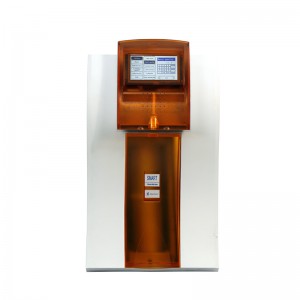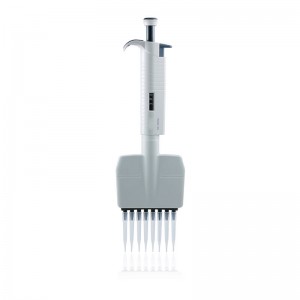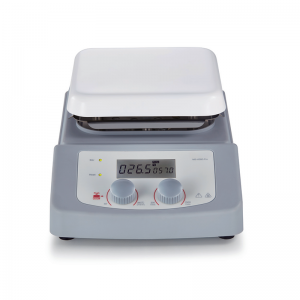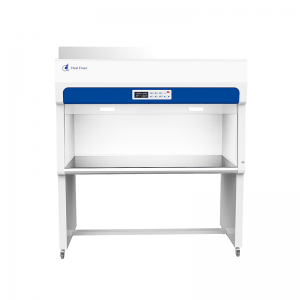IVD reagent Material Tumor maker
A tumor marker is anything present in or produced by cancer cells or other cells of the body in response to cancer or certain benign (noncancerous) conditions that provides information about a cancer, such as how aggressive it is, what kind of treatment it may respond to, or whether it is responding to treatment.For more information or samples please feel freely to contact sales-03@sc-sshy.com !
Human epididymis protein 4 (HE4) is also known as WAP four-disulfide core domain protein 2, and is a 124 amino acid long protease inhibitor. Serum HE4 is often measured together with CA125 to monitor progression of epithelial ovarian cancer after treatment.
|
Product code |
Clone no. |
Project |
Product Name |
Category |
Recommended platform |
Method |
Use |
|
BXAOOl |
ZL1001 |
HE4 |
Anti-HE4 antibody |
mAb |
ELISA,CLIA |
sandwich |
coating |
|
BXAOO2 |
ZL1002 |
Anti-HE4 antibody |
mAb |
ELISA,CLIA |
marking |
Cancer antigen 125 (CA125) is a peptide epitope on the mucin glycoprotein MUC16. CA125 is the most widely used serum biomarker to monitor epithelial ovarian cancer. It is also used for the differential diagnosis of pelvic masses
|
BXAOO3 |
ZL1010 |
CA125 |
Anti-CA125 antibody |
mAb |
ELISA,CLIA |
sandwich |
coating |
|
BXAOO4 |
ZL1011 |
Anti-CA125 antibody |
mAb |
ELISA,CLIA |
marking |
Cancer antigen 15-3 (CA15-3) is identified through the use of two monoclonal antibodies, one specific for the MUC-1 protein core and another specific for a carbohydrate epitope on the MUC-1 protein. CA15-3 is a widely used serum marker for breast cancer monitoring. Antibodies 4401, 4402, 4403, and 4404 recognize the MUC-1 core protein of CA15-3.
|
BXAOO5 |
ZL1020 |
CA153 |
Anti-ca153 antibody |
mAb |
ELISA,CLIA |
sandwich |
coating |
|
BXAOO6 |
ZL1021 |
Anti-ca153 antibody |
mAb |
|
marking |
Carbohydrate antigen 19-9 (CA19-9) is a tumor biomarker also called Sialyl Lewis A. Serum level measurements of CA19-9 are widely used in pancreatic cancer patients for monitoring their response to cancer treatments.
|
BXAOO7 |
ZL1032 |
CA199 |
Anti-CA19-9 antibody |
mAb |
ELISA,CLIA |
sandwich |
coating |
|
BXAOO8 |
ZL1033 |
Anti-CA19-9 antibody |
mAb |
ELISA,CLIA |
marking |
Carcinoembryonic antigen (CEA) is normally produced during fetal development. It has been used as a tumor marker for colorectal cancer and several carcinomas.
|
BXAOO11 |
ZL1050 |
CEA |
Anti-CEA antibody |
mAb |
ELISA,CLIA |
sandwich |
coating |
|
BXAOO12 |
ZL1051 |
Anti-CEA antibody |
mAb |
ELISA,CLIA |
marking |
Alpha-fetoprotein (AFP) is a major plasma protein produced by the fetus. AFP is measured in pregnancy as a screening test for a subset of developmental abnormalities. It is also used as a biomarker to detect a subset of tumors.
|
BXAOO13 |
ZL1062 |
AFP |
Anti-AFP antibody |
mAb |
ELISA,CLIA |
sandwich |
coating |
|
BXAOO14 |
ZL1063 |
Anti-AFP antibody |
mAb |
ELISA,CLIA |
marking |
Ferritin is the major intracellular iron storage protein in prokaryotes and eukaryotes. Ferritin is composed of 24 subunits of the heavy and light ferritin chains. Variation in ferritin subunit composition may affect the rates of iron uptake and release in different tissues.
|
BXAOO15 |
ZL1075 |
FER |
Anti-FER antibody |
mAb |
ELISA,CLIA |
sandwich |
coating |
|
BXAOO16 |
ZL1076 |
Anti-FER antibody |
mAb |
ELISA,CLIA |
marking |
β2-microglobulin (B2M) is a non-glycosylated polypeptide. The protein is characterized with a single polypeptide chain, which is linked noncovalently to major histocompatibility complex (MHC) class I cell surface antigen. The gene coding for B2M is mapped to human chromosome 15q.
|
BXAOO17 |
ZL1081 |
P2-MG |
Anti-Beta2-MG antibody |
mAb |
ELISA,CLIA |
sandwich |
coating |
|
BXAOO18 |
ZL1086 |
Anti-Beta2-MG antibody |
mAb |
ELISA,CLIA |
marking |
Epstein-Barr virus (EBV), also known as human herpesvirus 4, is a member of the herpes virus family. It is one of the most common human viruses. EBV is found all over the world. Most people get infected with EBV at some point in their lives. EBV spreads most commonly through bodily fluids, primarily saliva. EBV can cause infectious mononucleosis, also called mono, and other illnesses.
|
BXAOO19 |
ZL1096 |
EBV |
EBV-ZTA antigen |
rAg |
ELISA,CLIA |
indirect |
coating |
|
BXAOO20 |
ZL1097 |
EBV-EBNA antigen |
rAg |
ELISA,CLIA |
coating |
||
|
BXAOO21 |
ZL1099 |
EBV-VCA antigen |
rAg |
ELISA,CLIA |
coating |
CYFRA 21-1 is a fragment of cytokeratin 19 that is typically associated with epithelial cell cancers, including NSCLC, and is typically associated with the SQLC type. Since cytokeratins are structural proteins of keratin-containing intermediate filaments found in the epithelial cells, their degradation produces soluble fragments which are measurable in the blood of lung cancer patients as a tumor marker
|
BXAOO22 |
ZL1101 |
Cy21-1 |
Anti-Cy21-1 antibody |
mAb |
ELISA,CLIA |
sandwich |
coating |
|
BXAOO23 |
ZL1102 |
Anti-Cy21-1 antibody |
mAb |
ELISA,CLIA |
marking |






